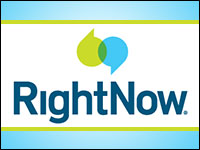
Small businesses frequently rely on a haphazard assortment of tools to manage their CRM processes, such as email, contact managers and spreadsheets. However, such methods are usually not sustainable or scalable.
“Their customer data ends up fragmented across 10 different applications and physical locations,” Dmitri Eroshenko, CEO of Relenta, told CRM Buyer.
A good CRM solution can help small businesses tremendously by reducing data fragmentation and administrative tasks, he said. Team and individual productivity will then increase.
“A CRM that works for small business can be a game changer,” J. Tyler Garns, director of marketing at Infusionsoft, told CRM Buyer.
When a small business can automatically access accurate customer information and use it to tailor communication and build relationships, sales increase dramatically, he explained.
Employee Buy-In Critical
However, training employees on a new system and convincing them to use it can prove to be a challenge. In order to reap the benefits of a CRM system, a small company should show employees how using it will provide a tangible benefit to them and help them do their jobs, Garns advised. Once employees understand the benefits of the new system, they will use it willingly.
On the other hand, employees who aren’t convinced will continue to use the same tired methods and receive none of the new system’s benefits. Getting all of a company’s employees to adopt the new system is vital to a successful implementation, Martin Schneider, director of product marketing for SugarCRM, told CRM Buyer. Without users putting data into the system, the company’s investment becomes a waste of money.
“When something can be completed without a new system, it is easy to dismiss the new system’s value,” Scott Meade, developer of PlaybookIQ for Synap Software, told CRM Buyer.
Companies must communicate the benefits of the system and not the features, Meade recommended. Emphasizing the system’s features rather than how it can benefit them leaves employees with the impression that there will be extra work to do and more unnecessary skills to learn.
They should also be told how the system benefits the company’s overall CRM processes. “People should understand why your CRM processes are in place and what benefits they provide,” Meade said.
Importance of Training
A good training program is key to successfully implementing a CRM solution at a small company. The new system will not serve the company’s needs if users do not understand how to use it properly. Training will help them obtain the maximum benefit.
A company should always consider training as part of the cost of the entire system, recommended SugarCRM’s Schneider.
“It really does pay to get the right training,” he advised, as it ensures better data quality and positive results.
When an application is first rolled out, structured, instructor-led training works better than self-paced training, according to Schneider. Following the initial implementation, companies should make use of online documentation, videos and tutorials; Schneider recommends working with a vendor that provides such material for free.
Open source communities and online services such as FaceBook and YouTube can also be useful.
Learning new applications can be overwhelming for non-technical people. Instead of trying to train them on everything at once, show them one feature that will provide an immediate benefit to them, suggested Infusionsoft’s Garns.
Then, create a continuous training program that provides bite-sized chunks over a time period. Both initial and ongoing training can help employees become more efficient and get the most from the system, he said.
Ongoing training will ensure that everyone is up to speed, and it’s a good opportunity to train new hires, Schneider added. Offering a refresher course every six months may be helpful, especially as new versions of the product are released. It also provides an opportunity for staff members to share best practices.
Power Users
Another good training strategy involves utilizing a power user or a small group of such users. Instead of training all users at once, train a few power users who can act as champions for the product and then train others. Trainers are the ones who can get people to live in the systems.
“Each company needs a strong CRM advocate,” Garns agreed. Once you have that advocate — usually a decision maker or the person who benefits most from the system — that person is likely to train others.
Choosing the right CRM solution for a small business greatly increases the chances of a successful implementation. Simple CRM systems work best for small businesses.
Do not use a system that is overly complex or too time-consuming to learn, warned Relenta’s Eroshenko. Avoid systems that are also too time-consuming to use on a daily basis.
“It’s like learning to fly a Boeing when all you need is a scooter to get around town,” he said. “You can crack the whip all day long, but if it takes a person 20 minutes to comply with the filing and recording requirements for each interaction with a customer, nothing will happen. They just won’t do it.”
Employees are less likely to see the value of a system that requires a lot of manual data entry, Garns agreed. If it is too unwieldy to use, it will exceed the employees’ ability to manage it. The more automated a system is, the better.
Choose a system that is easy to use, as hassle-free as possible, and does not require intensive training, Synap’s Meade suggested. Employees will more readily recognize the benefits of such a system.
“I cannot overemphasize the importance of choosing a system that is intuitive to use and introduces no frustration to people using it,” he stressed. “Guard closely against implementing a new system that is too complex for your needs.”
Start small — especially with the first implementation, he cautioned. The system should be scalable, but a company should add new features carefully. Depending on the company’s needs, the new features may not add significant value when the effort needed to implement them is taken into consideration.
“It’s really about making sure these people are successful,” Schneider said. Ultimately, that is the key to making the most out of a CRM system.
























































Thanks for the well written article and for the interview. I’m glad to small business CRM highlighted. Many small businesses are managed and run by people with domain expertise but not necessarily sales and CRM experience, or CRM is thought of as something large and unwieldy that only pertains to very large corporations. For these reasons, the benefits of CRM are sometimes overlooked by small biz owners.
Thanks for the great article, Maria!
Here’s another interesting post on this subject:
Email + CRM + LinkedIn + Twitter = Hustler’s Power Drill
http://www.readwriteweb.com/enterprise/2009/10/email-crm-linkedin-twitter-hustlers-power-drill.php